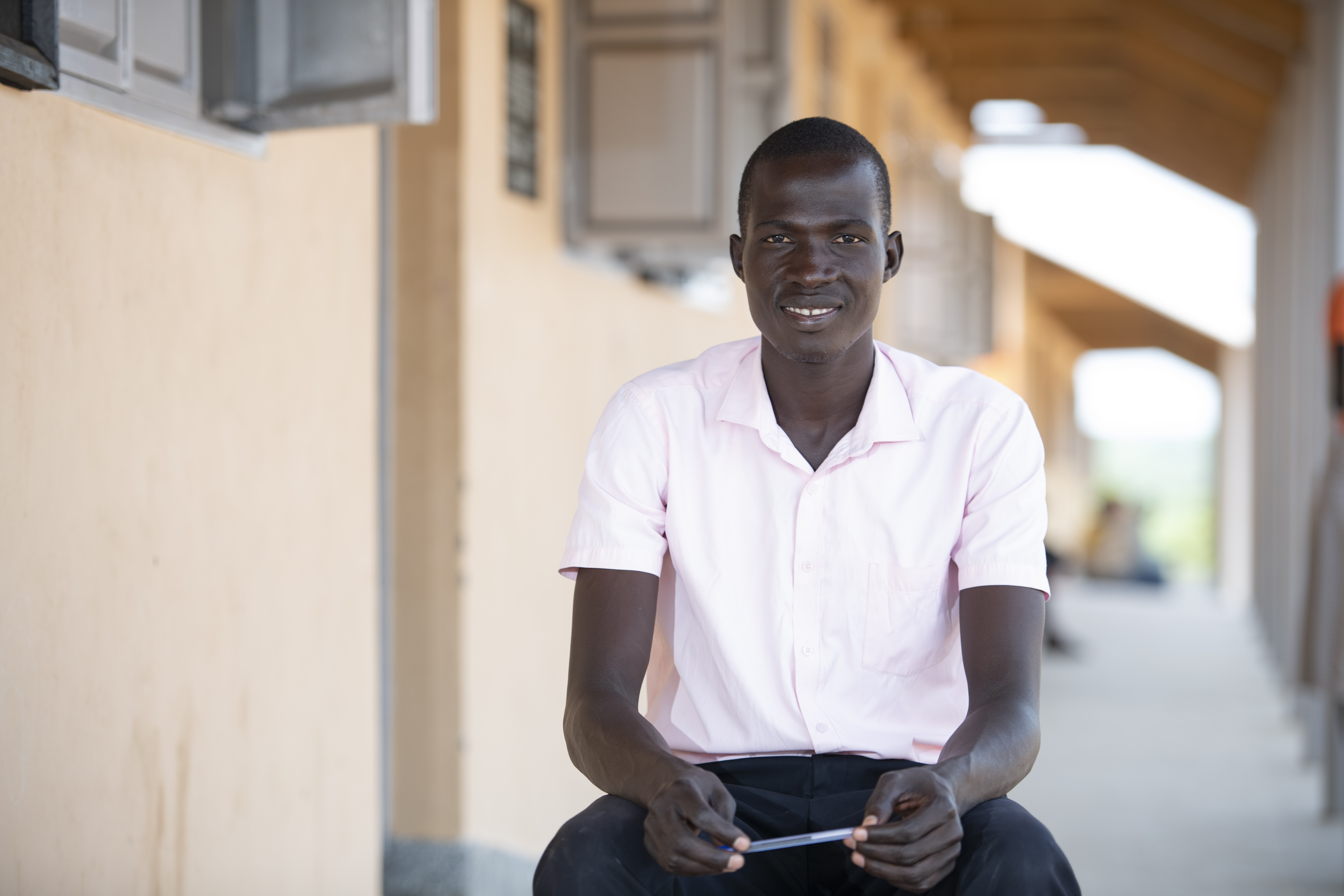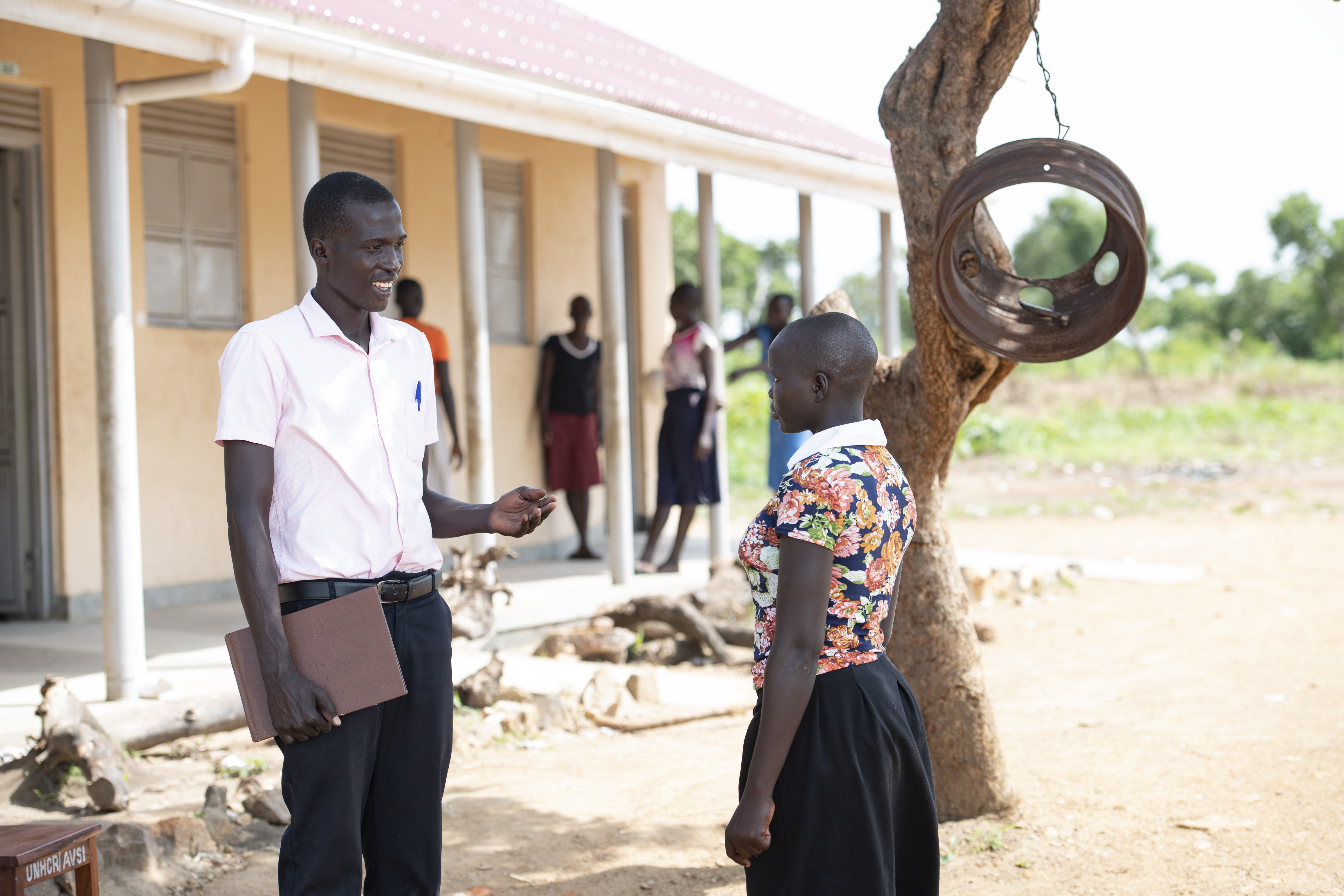Teacher Stories: Francis - Palabek Refugee Settlement, Uganda
This story was collected as part of Teachers in Crisis Contexts (TiCC) Event Series to ensure that the voices and experiences of teachers working in crisis and displacement permeate all aspects of the event. For more stories, click here.
‘I Would Like to Make a Difference’

Name: Francis Ocaya
Age: 26 years old
Role: Teacher
School: Ogili Hill Primary School
Location: Palabek Refugee Settlement, Uganda
"Just like the children I teach I have experienced the loss of my home and know what it is like to flee a war I did not have any part in. Perhaps that is the reason why I wanted to come work here and make a difference for these children", Francis Ocaya explains.
He is Ugandan, and as a child he was forced to flee his home because of the conflict between the Ugandan government and rebel forces. He is a trained teacher and he used to work in a private school in Kitgum when he saw the job advertisement for teachers for one of the new schools in Palabek – a school that was established mainly to accommodate the many children who come here after having escaped the war in South Sudan.
"I wanted to try working with children with special needs. It is interesting, but also challenging and anything but easy. It is hard because the classes are large and especially because the children vary a lot in age. A lot of them have missed many years of schooling, and they are now grouped with much younger children. The older children are not happy with it. They are embarrassed to be grouped with small children. Some drop out. The learning outcome of the rest is often poor", he says.
Another challenge is the language. The teaching is conducted in English, which is the main language in Uganda and in some parts of South Sudan. In other parts of South Sudan, the main language is Arabic, while in other parts schools mainly teach in the local language. This means that Francis is unable to communicate with some of his pupils. Naturally, this is a challenge, but above all he thinks it is a good thing that the children’s families have been persuaded to send the children to school – even though they do not speak English yet. Because all children need what the school can offer. And because it is important that the children learn to bridge the differences that are part of the reason why there is a war going on in South Sudan.
"I have received further training in teaching under these conditions – with large classes, young and older children together, children who speak different languages etc. It has been very useful. I am especially happy to have learned how to spot and help the children who are really struggling", Francis says.

Most of the pupils have been here since the school opened about a year ago. Initially, Francis felt that a lot of them had difficulties concentrating and clearly did not feel well. "Traumatised children typically react in one of two ways. They either withdraw and neither speak to anyone nor pay attention to the teaching. Or they are irascible and too violent when playing. When we identify such behaviour, we speak to the children about it to learn what is troubling them. We show them that we are there for them. And we make an effort to get them involved in activities and games. We spend a lot of time getting the children to talk, telling them stories and getting them involved in various group activities", Francis explains.
He is convinced that he and the other teachers in this way contribute to bringing peace to the country. "Peace comes when people have options and when they have the mental resources to identify the correct behaviour in a given context. At this school we teach refugees from various parts of South Sudan as well as Ugandan children from the local area. Bringing them together, letting them get to know each other and become friends is a good thing".
Francis Ocaya hopes the BRICE project will give even more children and teachers the opportunities offered at his school. And then he hopes to be able to persuade more families to also send the girls to school. "It is very difficult to get especially the older girls to stay in school. A lot of families can see no reason why girls should get an education, and a lot drop out. Perhaps because they get pregnant or married, or because they would rather have them help out at home. Just two weeks ago I realised that one of the girls in my class was pregnant and had dropped out. She is 19 years old and had almost completed primary school. I went to see her family and convinced both the girl’s mother and her husband that she should come back and finish her schooling", Francis says.
He wants to learn more about how teachers can help motivate girls to stay in school. And he very much wants to improve the framework of his work. "I would like to see the teachers’ working conditions improve soon. Right now there are too few teachers for the many pupils. We lack teaching resources and proper working conditions. Concretely, it would make a big difference if teachers and pupils could get something to eat during the long school days. And if we, the teachers, could get a place to live", he says.
Right now Francis and two of the other teachers sleep in an empty office at the school. His home and family are in Kitgum, but he cannot go back and forth every day, so during the week and some weekends he stays at the school. Some of his colleagues rent a place to sleep in the huts of some of the refugee families near by. In addition, the teachers often do not get paid much.
Nevertheless, Francis Ocaya has never regretted applying for the job in Palabek. "We make a vital difference to these children. A lot of them are traumatised by extreme experiences, but we give them something else to think about and show them a good path in life".
(Written By Malene Aadal Bo)
*This article was produced with the financial support of the European Union. Its contents are the sole responsibility of Oxfam and do not necessarily reflect the views of the European Union.
The views expressed in this blog are the author's own.



